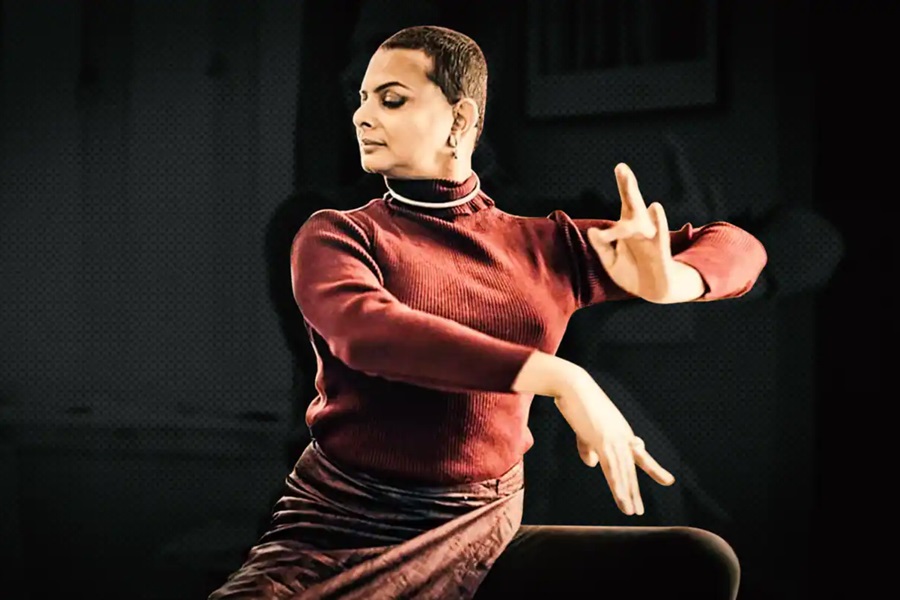Ode to the bird of dusk in Bengali Cinema: Rituparno Ghosh

Published :
Updated :

A serene scenario emerges into a day full of mist. A car is running through the roads of Kurseong. The camera focuses on two poles of life– knitted with one story. The real-life mother-daughter duo of Aparna Sen and Konkona Sen is seen in the reel version. The complexities of two different ages, the stability of her mother and the restlessness of Titli makes us wonder how human relationships work, how they stumble on the way and still manage to stay put together. Even the established 'most simple' relationship between a mother and her child is not very far from these complications. The conflict of mother-child relations also took different turns in his other films, such as Unishe April and Memories in March, evoking a profound sense of empathy and understanding.
Rituparno Ghosh started his journey by taking Ray's inspiration, and he always seemed confident in his choice. As a director, he could pinpoint these complexities with a natural, peaceful tonality; it all seemed like lyrical poetry– cinema poetry. It has always been said that Ghosh appeared to understand the finer lanes of a female mind. Be it in 'Dahan', 'Dosar', or other films where it is not directly female-centric yet discovers the psyche in detail. Even in a movie where a woman is the main culprit of a murder story, Ghosh enables the audience to feel empathetic towards her, as shown in his 2003 film Shubho Mahurat.
His films captivated audiences with their subtle storytelling and focus on complex characters. Often set indoors, his makings relied heavily on dialogue, detailed set design, and expressive silences to explore themes of love, loss, and the human condition.
The transformation of a person, how they deal with new possibilities, and how they make peace with the present are some critical characteristics of Rituparno Ghosh's films. 'Bird of Dusk' is a documentary by Sangeeta Datta that revolves around the creations and the lifestyle the creative mind nurtures. This name is also very connected to his filmography as in 'Chitrangada: The Crowning Wish', he referred to it from Abanindranath Tagore's painting with the same name. Literature and literary references, especially Rabindranath Tagore, have always been in the Rituparno films, showcasing his deep appreciation for the cultural heritage of Bengal. He also adapted from the works of Tagore, such as 'Chokher Bali' and 'Noukadubi'. Though it was not a direct adaptation, his last film, 'Chitrangada' in 2012, portrayed a mythological character Tagore represented in one of his dance dramas found in Geetabitan. Rituparno somehow connected how Chitrangada transformed herself and went through the pain of change. He also could relate to Chitrangada intricately because of the passion for dance inside him, as he was the 'only male dancer' in his school life, a testament to his unique artistic vision.
Tagore and other poets, such as Jibonananda Das, are very relevant to Ghosh's films. In his 2000 film 'Bariwali', he portrayed a lonely middle-aged woman named Banalata. Rituparno wanted to bring out Jibonanda's Banalata in a lonely environment, waiting for one ounce of peace she provided to the poet. Kiran Kher, a well-known face in Bollywood, played the role. It is also notable how popular Bolly-faces take a Bengali image in his films and feel so familiar even if they have yet to do any other Bengali film. Be it Preity Zinta, Amitabh Bachchan or Arjun Rampal in 'The Last Lear', Aishwarya Rai in 'Chokher Bali' or Bipasha Basu in 'Shob Charitro Kalponik'.
The music used in his films acted as tools that mirrored his characters' emotional landscapes. He brought out a blend of classical Indian melodies, folk music, and contemporary soundscapes. The music would subtly shift as the characters' relationships and internal conflicts unfolded. Silence was also used strategically, creating tension or emphasising unspoken emotions. This thoughtful and layered approach to music complemented Ghosh's intricate storytelling and character development.
Only some can vouch whether a Bonomali can turn into Radha in his next life. Still, Rituparno, in this life, left an unforgettable footprint in the Bengali film industry. Rituparno Ghosh's legacy in Bengali cinema is undeniable. His films, with their poignant narratives and nuanced characters, have left an enduring mark, a testament to his unparalleled talent and dedication. Through his masterful storytelling, he'll continue to captivate audiences for years to come, ensuring his place in the pantheon of Bengali cinema.


 For all latest news, follow The Financial Express Google News channel.
For all latest news, follow The Financial Express Google News channel.